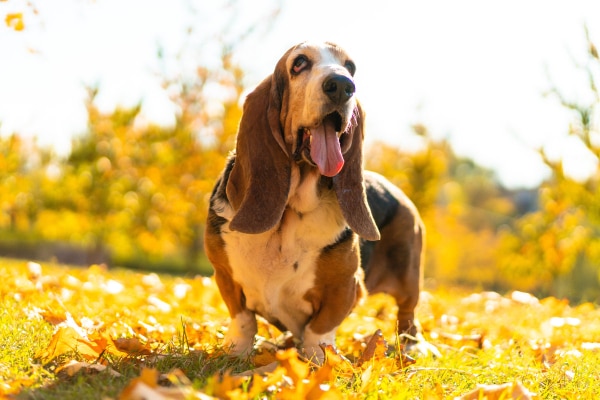Dog nose hyperkeratosis (which shows up as a dry, crusty, and/or cracked nose) can be unsightly and sometimes even uncomfortable for affected dogs. Integrative veterinarian Dr. Julie Buzby takes a look at nine reasons a dog may develop nasal hyperkeratosis and discusses how best to help soothe and moisturize your pup’s sniffer.
Common Dog Health Problems
Prednisone for Dogs: Uses, Side Effects, Helpful Tips
Horner’s Syndrome in Dogs: Causes, Symptoms, Treatment
In Horner’s syndrome, dogs have a collection of eye-related symptoms, including a constricted pupil, droopy eyelid, sunken eye, and/or elevation of the third eyelid. Integrative veterinarian Dr. Julie Buzby explains the anatomy and physiology behind Horner’s syndrome. And then she discusses the symptoms, causes, diagnosis, treatment, and prognosis for Horner’s syndrome in dogs.
Vestibular Disease in Dogs: Doggy Vertigo
When your senior dog suddenly acts strange and out-of-sorts, it is unnerving. The good news is that dramatic symptoms don’t always mean a devastating diagnosis. Dr. Julie Buzby, integrative veterinarian and founder of Dr. Buzby’s ToeGrips®, shares her experience diagnosing old dog vestibular disease, a condition with symptoms that can rattle even the most dauntless pet parent…but usually ends in happily ever after. Read on to learn more…
Methocarbamol For Dogs (Robaxin®): What It Is & How It’s Used
Methocarbamol for dogs is a muscle relaxer that vets may prescribe to relieve muscle spasms in dogs with conditions like intervertebral disc disease (IVDD). To help dog parents learn about this medication, integrative veterinarian Dr. Julie Buzby explains the uses, dosage, side effects, and contraindications of methocarbamol for dogs






